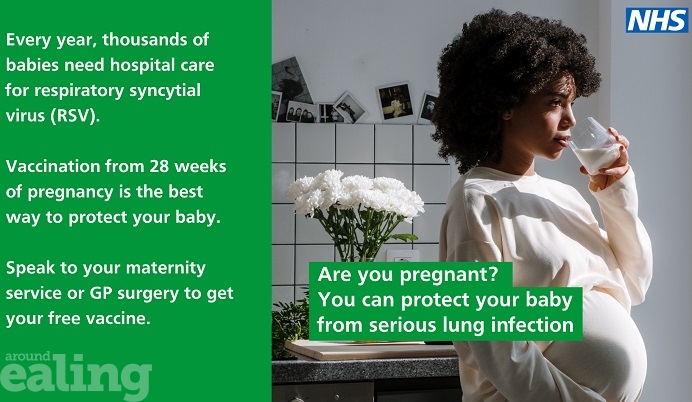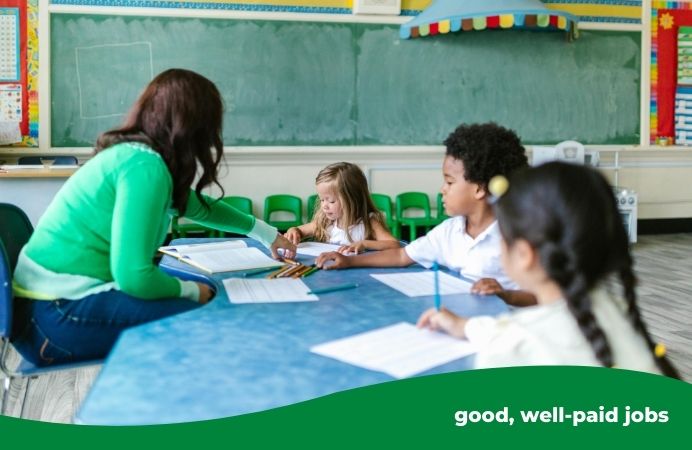A new vaccine offers protection for babies and older people from respirator syncytial virus (RSV) lung infections this winter.
Every year thousands of babies and older people are hospitalised because of lung infections which can lead to death. But this year, pregnant women and older people are encouraged to get protection from RSV with a new vaccine.
RSV is particularly common from October to February and while symptoms can be mild, it can lead to pneumonia and infant bronchiolitis, be particularly dangerous for infants and older people, require hospitalisation and intensive care in severe cases, and accounts for 20-30 infant deaths.
But it’s easy to be protected. A new vaccine is available for women who are 28 or more weeks pregnant and older people aged 75-79.
Councillor Polly Knewstub, Ealing Council’s cabinet member for healthy equal lives said: “I strongly encourage women who are 28 or more weeks pregnant to speak to their maternity service or GP surgery to ensure their baby is protected, and those aged 75 to 79 to come forward for their vaccine when contacted by their GP from September.
“A simple vaccine provides the protection needed against this infection which is so easily spread.”
Who is at risk?
RSV can be especially dangerous for infants and the elderly.
It is most common in infants under 1-year-old. Babies are particularly vulnerable to RSV lung infections as they have small airways and have limited immunity against the virus. The infection in infants can cause a condition called bronchiolitis which is inflammation and blockage of the small air tubes in the lung.
Infants with severe bronchiolitis may need intensive care and the infection can be fatal.
RSV can also be severe in older adults, causing pneumonia and flare-ups of existing lung disease and other long-term conditions. It causes around 9,000 hospitalisations in those aged over 75 in the UK each year.
The symptoms of RSV
RSV may cause a cough or a cold, wheezing, shortness of breath, tiredness and fever. Most cases are not serious and clear up within 2 to 3 weeks.
You can find out more about the symptoms of RSV on the NHS website.
RSV can also cause bronchiolitis in infants, which can make it difficult to breathe and feed. RSV bronchiolitis symptoms may include difficult, fast or noisy breathing and being unsettled or difficult to comfort.
Protection
The best way to protect babies against RSV infection is for the mother to have the vaccine during pregnancy. This will be available from September 2024.
Vaccination reduces the risk of severe RSV lung infection by around 70% in the first six months of life.
It works by boosting the pregnant woman’s immune system to make antibodies that can fight RSV infection. These antibodies then pass through the placenta to help protect the baby from birth.
Pregnant women should have the RSV vaccine in every pregnancy – this gives each new baby the best protection.
In older adults, a single dose is expected to give good protection for a few years. A single dose of vaccine will help to boost protection as you reach an age group at highest risk of serious RSV infection.
Find out more about this new vaccine.





